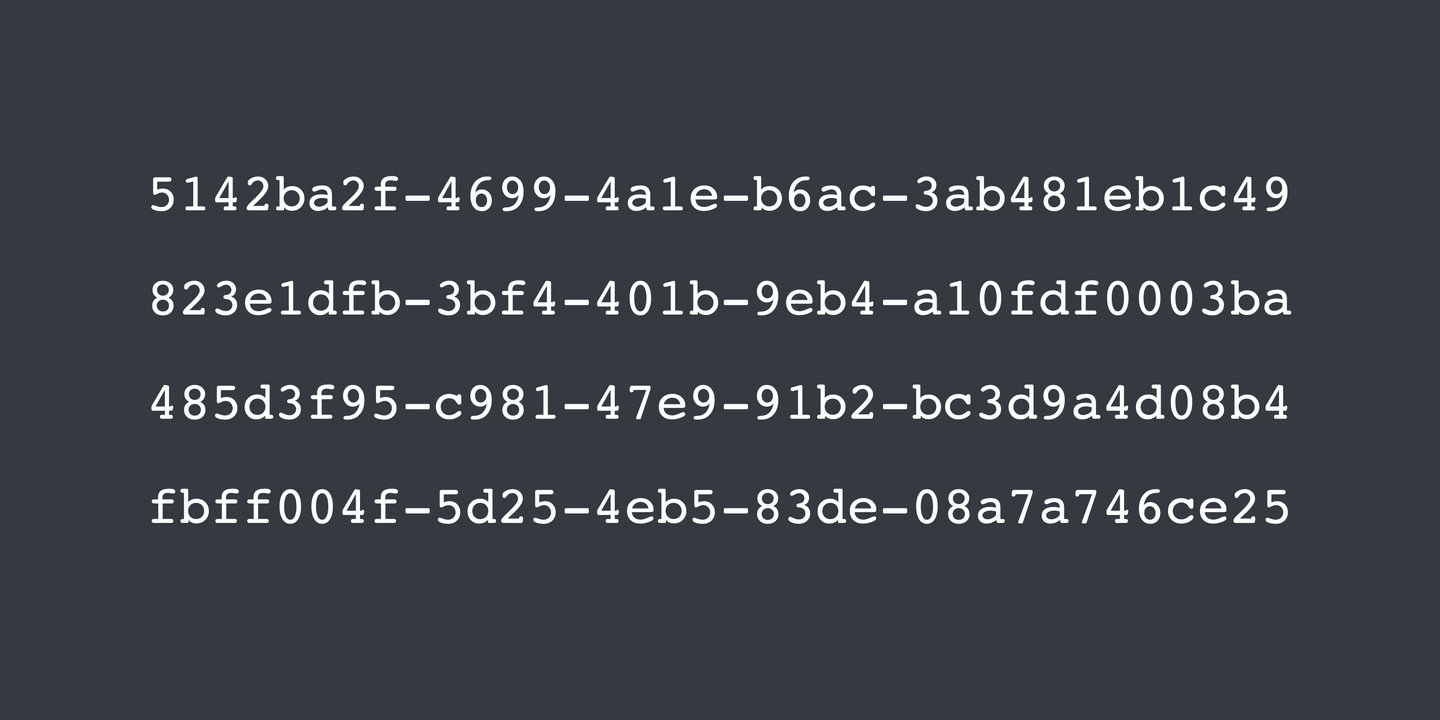Hibernate Generate Uuid As Primary Keys
- Hibernate Uuid String
- Hibernate Generate Uuid As Primary Keys In Excel
- Hibernate Generate Uuid As Primary Keys List
Hibernate to generate id (primary key) The optional child element names a Java class used to generate unique identifiers for instances of the persistent class increment generates identifiers of type long, short or int that are unique only when no. Nov 06, 2017 Today, I will show you how to generate unique primary key values with JPA and Hibernate. But before we start, I want to know how you get the primary key values in your application? /generate-certificate-using-openssl-private-key.html. Feb 28, 2016 Auto increment keys vs. Tldr: Programmers should love values and UUID is a value. Today I would like to write about not so obvious point of view on classic database design question: “Auto. As you’ve seen, you can also use UUIDs as primary keys and let Hibernate handle the value generation. Hibernate’s UUIDGenerator supports the creation of version 1 and version 4 UUIDs as defined by IETF RFC 4122. By default, it generates version 4 UUIDs which is a good fit for most use cases. Jul 04, 2019 Some of its usage are for creating random file names, session id in web application, transaction id and for record’s primary keys in database replacing the sequence or auto generated number. To generate UUID in Java we can use the java.util.UUID class.

I'm trying to use generated UUIDs without @Id annotation, because my primary key is something else. The application does not generate an UUID, do you have an idea? This is my declaration: @Colum.
Hibernate Uuid String

| importjava.io.Serializable; |
| importjava.nio.ByteBuffer; |
| importjava.util.Arrays; |
| importjava.util.UUID; |
| importjavax.persistence.Access; |
| importjavax.persistence.AccessType; |
| importjavax.persistence.Column; |
| importjavax.persistence.Embeddable; |
| @Embeddable |
| @Access(AccessType.FIELD) |
| publicclassUniqueIdimplementsSerializable { |
| privatestaticfinallong serialVersionUID =4458438725376203754L; |
| @Column(columnDefinition='BINARY(16)', length=16, updatable=false, nullable=false) |
| privatebyte[] id; |
| publicUniqueId() {} |
| publicUniqueId(byte[] id) { |
| this.id = id; |
| } |
| publicUniqueId(Stringid) { |
| this(toByteArray(UUID.fromString(id))); |
| } |
| @Override |
| publicStringtoString() { |
| return toUUID(id).toString(); |
| } |
| publicstaticUniqueIdfromString(Strings) { |
| return fromUUID(UUID.fromString(s)); |
| } |
| publicstaticUniqueIdfromUUID(UUIDuuid) { |
| returnnewUniqueId(toByteArray(uuid)); |
| } |
| privatestaticbyte[] toByteArray(UUIDuuid) { |
| ByteBuffer bb =ByteBuffer.wrap(newbyte[16]); |
| bb.putLong(uuid.getMostSignificantBits()); // order is important here! |
| bb.putLong(uuid.getLeastSignificantBits()); |
| return bb.array(); |
| } |
| privatestaticUUIDtoUUID(byte[] byteArray) { |
| long msb =0; |
| long lsb =0; |
| for (int i =0; i <8; i++) |
| msb = (msb <<8) (byteArray[i] &0xff); |
| for (int i =8; i <16; i++) |
| lsb = (lsb <<8) (byteArray[i] &0xff); |
| UUID result =newUUID(msb, lsb); |
| return result; |
| } |
| @Override |
| publicinthashCode() { |
| finalint prime =31; |
| int result =1; |
| result = prime * result +Arrays.hashCode(id); |
| return result; |
| } |
| @Override |
| publicbooleanequals(Objectobj) { |
| if (this obj) |
| returntrue; |
| if (obj null) |
| returnfalse; |
| if (getClass() != obj.getClass()) |
| returnfalse; |
| UniqueId other = (UniqueId) obj; |
| if (!Arrays.equals(id, other.id)) |
| returnfalse; |
| returntrue; |
| } |
| publicstaticUniqueIdgenerate() { |
| return fromUUID(UUID.randomUUID()); |
| } |
| } |
Hibernate Generate Uuid As Primary Keys In Excel
commented Feb 12, 2016
Hibernate Generate Uuid As Primary Keys List
Lifesaver! Used this for general byte[] primary keys with a reordered UUID component /30-show-the-20-bits-key-stream-generated-from.html. |